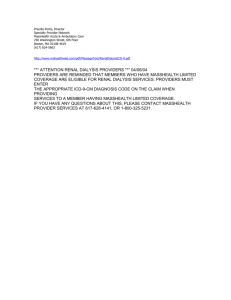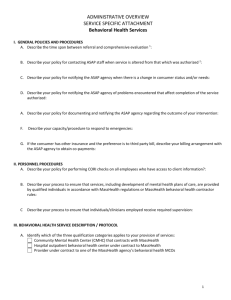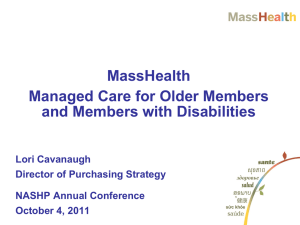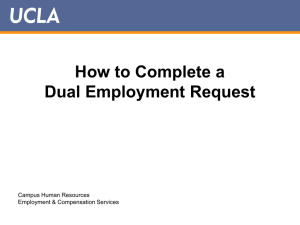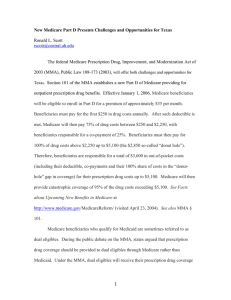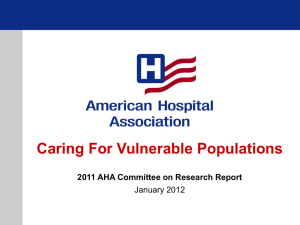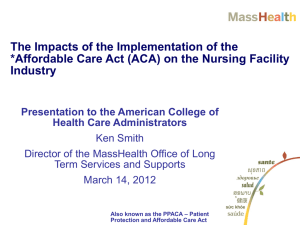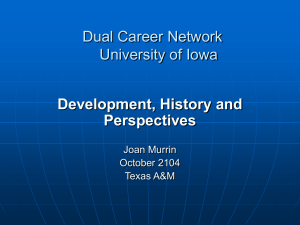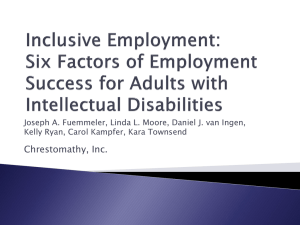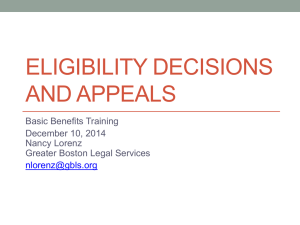Altman Moore Presentation - Alliance for Health Reform
advertisement
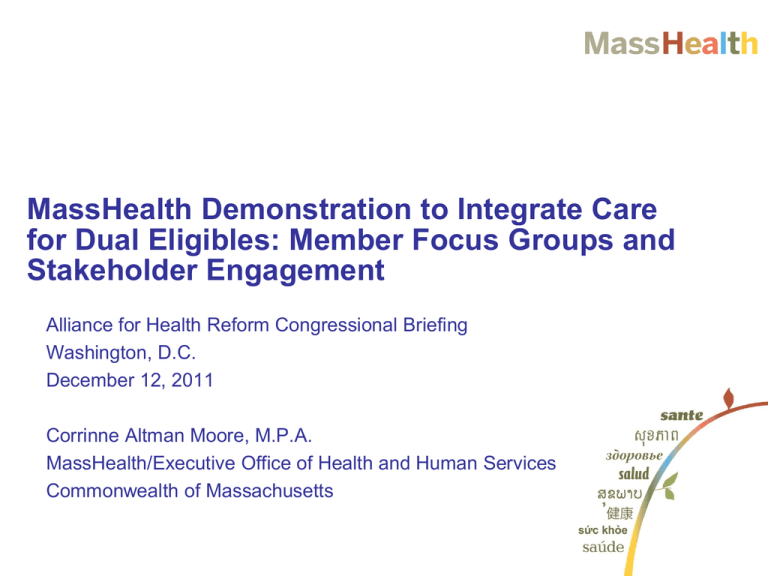
MassHealth Demonstration to Integrate Care for Dual Eligibles: Member Focus Groups and Stakeholder Engagement Alliance for Health Reform Congressional Briefing Washington, D.C. December 12, 2011 Corrinne Altman Moore, M.P.A. MassHealth/Executive Office of Health and Human Services Commonwealth of Massachusetts Initiative to Integrate Care for Dual Eligible Individuals ■ One of 15 states awarded a $1M planning contract from CMS Center for Medicare and Medicaid Innovation to support the development of a design proposal for a State Demonstration to Integrate Care for Dual Eligible Individuals ■ Purpose is to identify, support and evaluate personcentered models that integrate the full range of acute, behavioral health, and long term supports and services ■ Target population: 115,000 dual eligibles ages 21-64 with full MassHealth and Medicare benefits 2 Proposed Benefit Design ■ Medicare Services: All Part A, Part B, and Part D services ■ Medicaid State Plan Services ■ Additional Behavioral Health Diversionary Services ■ Additional Community Support Services ■ Integrated Care Management – Medical and non-medical services coordinated through multidisciplinary care teams – Members play an active role in care planning and decisions 3 Proposed Delivery Model ■ Integrated care organization (ICO) baseline requirements: – Foundation of person-centered medical homes, with core competencies in team-based care, care coordination – Highly developed acute, primary care, behavioral health, and long term services and supports provider networks – Health information technology ■ Global payment for all MassHealth and Medicare services for acute and primary care, behavioral health and community support services ■ Contracted ICOs must demonstrate experience and competencies in serving individuals with disabilities, chronic behavioral health diagnoses, and chronic medical problems 4 Stakeholder Involvement ■ Regular consumer-focused meetings (7 to date) since March 2010 ■ Open public meetings (3 to date) in Boston and Worcester, with robust participation ■ Member focus groups (4, randomly selected) ■ Public presentation of data analysis on the profile of dual eligibles age 21-64, sponsored by MMPI ■ Outreach to disability community and advocacy groups, such as: – Potter Place Clubhouse – Massachusetts Advocates Standing Strong (MASS) – Disability Advocates Advancing our Healthcare Rights (DAAHR) – M-Power – The Transformation Center – Boston Health Care for the Homeless Program ■ Public facing website and email address 5 Focus Groups Conducted in Summer 2011 ■ Four focus groups of dual eligible members ages 21-64 convened to discuss current benefits and the idea of an integrated model ■ Rich variation in geography, urban vs. rural location, and primary language ■ Valuable perspectives and input, including positive comments about some current benefits and areas that need improvement ■ Results have been summarized and presented to stakeholders, and are being considered in our design decisions 6 Focus Groups: Positive Impressions and Opportunities from Health Care Experiences Working Well: Opportunities: ■ Primary and specialty care ■ Dental services/ Eyeglasses ■ Hospital services ■ Medical transportation ■ PCA Services ■ Low out-of-pocket cost ■ Range of covered services ■ Mailings and materials ■ Customer service ■ Annual eligibility reviews ■ Durable Medical Equipment (DME) quality and compatibility ■ Limits on physical therapy ■ Limits on covered medications ■ Case management 7 Focus Groups: Integrated Care Model Positive Change: To Make it Attractive: ■ Eliminate waste; redundancy ■ Include current providers ■ Save money on duplicative administrative costs ■ Reduce bureaucratic overlap ■ Increase information sharing between two agencies ■ Level cost-sharing for Rx ■ Ensure continuity of care ■ Include all current benefits ■ Make accessing services simple ■ Member control over care decisions ■ Improve dental, eyeglasses, DME, care coordination ■ Inform members about change 8 Demonstration Features Developed from Focus Groups, Stakeholder Feedback ■ Benefit Design: – Improve current benefits: Dental Services, Eyeglasses, DME – Add key benefits: Peer supports, nutrition and wellness, community health workers ■ Enrollment Process and Outreach: – Neutral/impartial enrollment broker – Sufficient time and clear information to make a choice ■ Provider Networks: – Preserve connections to current providers and caregivers – Require entities to continually enroll providers that meet network requirements 9 Visit us at www.mass.gov/masshealth/duals Email us at Duals@state.ma.us 10
